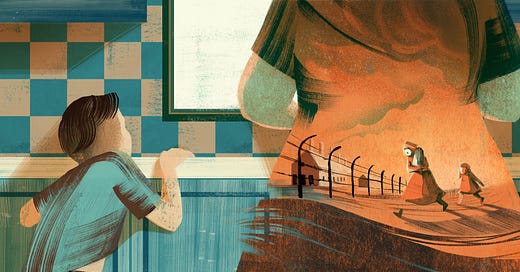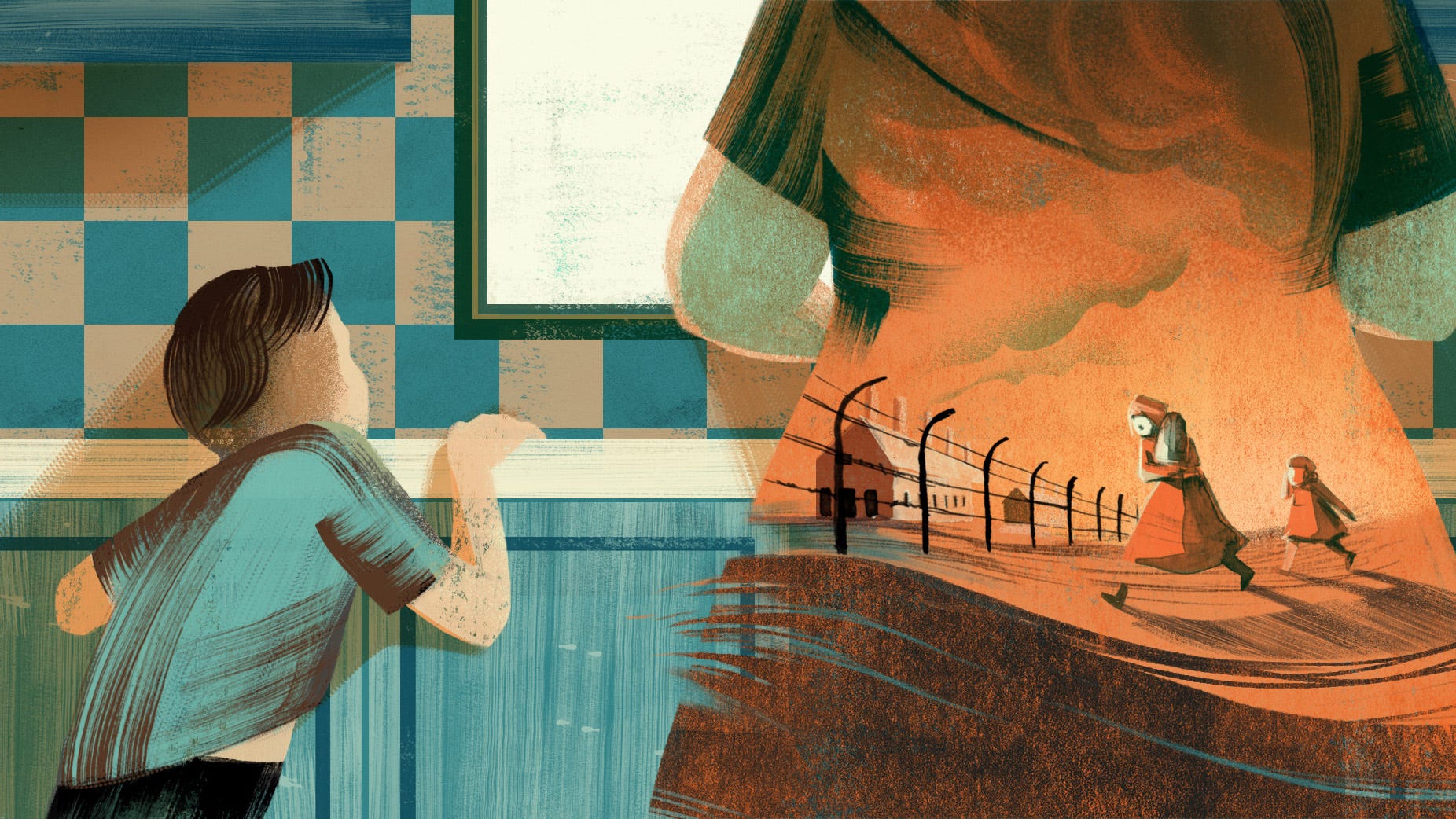My Grandma's Hidden Holocaust Heroics
We grew up idolizing grandpa for surviving death marches and beating up Germans, but grandma was always just, well...a sweet old lady. We couldn’t have been more wrong.
Illustrations by Cornelia Li
“Noiach, a crumb!” my brother shouted. He was wearing Grandma’s blue muumuu.
“A crumb,” I concurred, draped in her yellow housedress.
We attacked the matzoh flake in the rug with our hands and the carpet sweeper. The family applauded our skit. But Grandma stood there with her arms crossed; her Auschwitz tattoo — all five numbers — pressed against her belly.
“This is what you think of Grandma?” she asked.
It was.
We harassed her constantly, lovingly. We’d always compress her brand-new perms, or jiggle her hanging tricep skin, exposed when she stirred the soup. All my life, she had lived like a stereotype — a neurotic cartoon character who had embedded herself into my reality.
Grandma censured us a bit more for the mockery, then kissed our faces, and ran off to the kitchen, panicking about a pot unattended on the stove.
To us, she was an old Jewish woman who had somehow survived the Holocaust. Poppy, on the other hand, had fought in the Warsaw Ghetto Uprising, and s…
Keep reading with a 7-day free trial
Subscribe to Narratively to keep reading this post and get 7 days of free access to the full post archives.




